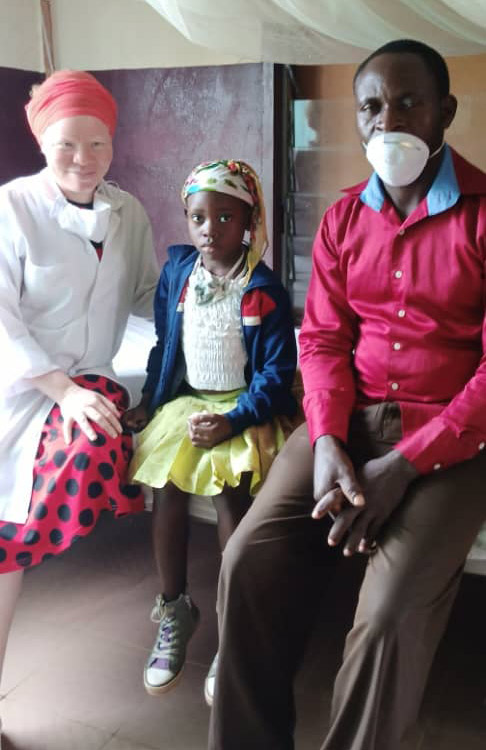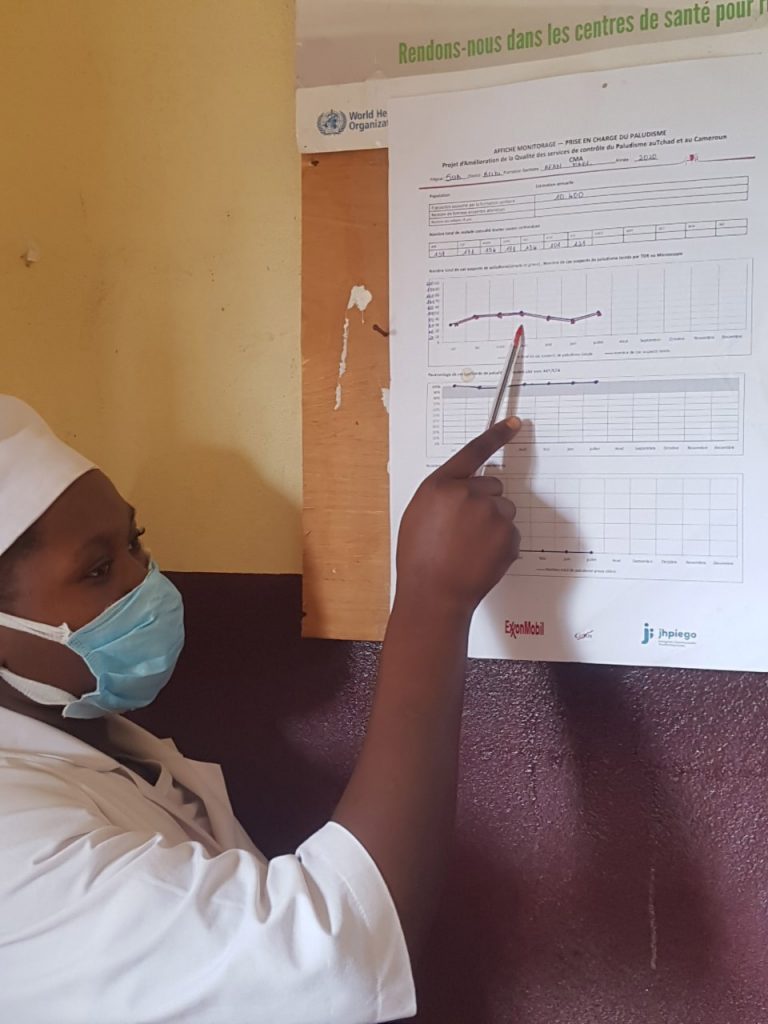Parents worldwide want to keep their children from harm. In Cameroon, this means being vigilant about signs of malaria in children and ensuring that they can get to a health facility equipped to provide the necessary care. Malaria, the leading cause of morbidity and mortality in the country, is particularly dangerous for children. It’s only natural, then, that parents worry when their child comes down with a fever.

When the father of 5-year-old Princesse found his daughter still feverish after 2 days and convulsing, he knew she needed immediate care. Princesse’s worried parents rushed her to the Centre Médicale d’Arrondissement (CMA) of Afan-Mabé by motorcycle. Once there, health facility staff took her right away to be tested. Thankfully they came to the right place.
The CMA, located in the city of Kribi in the Afan-Mabé district, was transformed from an integrated health center into a CMA in 2009. The facility offers pediatrics care, admissions, vaccination, maternal health care and HIV services, among others, and also houses a laboratory and pharmacy.
Through funding from the ExxonMobil Foundation, Jhpiego is strengthening the capacity of the Cameroonian Ministry of Health, the National Malaria Control Program, health care providers and community health volunteers to provide high-quality malaria prevention and treatment for nearly 1,180,000 people living in 10 malaria-endemic districts along ExxonMobil’s 1,070-kilometer pipeline, which includes Kribi.
Jhpiego has trained providers at this CMA on the management of malaria cases according to national guidelines. Jhpiego also designed monitoring posters to be used at the facility to help visualize the data to make informed decisions for care and treatment. This CMA also benefits from regular supervision by the district manager, with technical and financial support from the program.
Dr. Gaëlle Mondjengue, Chief Medical Officer of this CMA, is helping to ensure that her facility uses its data most effectively to be most prepared to respond to potential challenges. She attended a Jhpiego training in 2014 on the management of malaria. In 2015, she attended another training as supervisor of the health facilities implementing Cameroon’s National Malaria Strategy 2019–2023 in the district of Kribi. Since her appointment in 2018 as head of the CMA of Afan-Mabé, Dr. Mondjengue has used her supervisory skills, as well as Jhpiego’s regular support during supervision visits and data validation meetings, to improve the facility’s quality of care. She uses data for decision-making, an important way to foresee commodity stock-outs. By regularly using the data on the monitoring posters to evaluate its orders of medicines according to the Jhpiego team’s recommendations, this site did not experience any malaria commodity stock-outs from January 2019 to June 2020, thus ensuring prompt quality care and treatment to patients like Princesse.

When the little girl and her parents arrived at the CMA, Dr. Mondjengue went to the treatment room with the duty nurse and spoke with the child’s father, who said that his daughter had started to have a fever 2 days earlier. He had given her painkillers, and, in the morning, she seemed better. But then at noon, she went to bed and started convulsing.
Through a thorough examination and a positive rapid diagnostic test, the duty nurse confirmed that the girl had severe malaria. Princesse was also suffering from severe anemia and convulsions, and was in and out of consciousness. She received a blood transfusion and injectable artesunate, an antimalaria treatment used in the management of severe malaria.
The ability to provide Princesse and other patients with the prompt care needed was thanks to the facility’s efforts in closely monitoring its data on commodities. From January to September 2020, this CMA received 421 suspected cases of malaria, 418 of which had a rapid diagnostic test or a microscopy done, a confirmation rate of 99%. A total of 359 cases of malaria were confirmed during this time period, including 192 cases of uncomplicated malaria, all of whom received artemisinin-based combination therapy according to national guidelines, and 167 cases of severe malaria who also received appropriate treatment.
In Princesse’s case, she was already feeling much better by the next day. She no longer had a fever and left the CMA after 3 days. Her parents were very happy at the speed and quality of care with which their daughter was treated.
Princesse and her parents returned a week later for a follow-up appointment. Her father expressed his gratitude to Dr. Mondjengue and her team for saving his little Princesse’s life.
CMA Afan-Mabé offers hope to every patient entering its doors through the use of accurate data to respond to any health challenge that comes its way.




